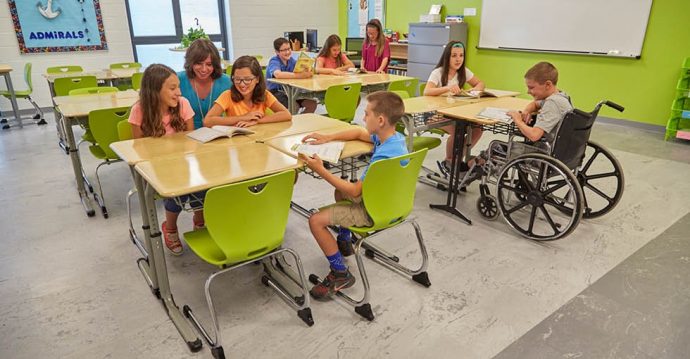
Special Education and Inclusive Practices in Pakistan
Introduction
Special education and inclusive practices are integral components of an equitable and just educational system in any country. These practices are designed to ensure that students with disabilities have equal access to quality education, fostering a more inclusive and diverse society. In this article, we will explore the state of special education and inclusive practices in Pakistan, highlighting some of the real-life examples of success and challenges.
Current Practices of Special Education in Pakistan
Pakistan has made significant progress in recognizing the rights of individuals with disabilities, particularly in the field of education. The Constitution of Pakistan and various international conventions, including the United Nations Convention on the Rights of Persons with Disabilities (CRPD), emphasize the importance of inclusive education. The country has introduced policies and initiatives to promote inclusive education and support students with disabilities.
Challenges for Special Education
While there have been improvements, Pakistan still faces several challenges in implementing inclusive education and ensuring the rights of individuals with disabilities. Some of the main challenges include:
- Limited Access: A significant number of children with disabilities in Pakistan still lack access to education due to physical barriers, lack of transportation, and a shortage of specialized teachers and resources.
- Stigma and Discrimination: Deep-seated societal prejudices persist, leading to discrimination against individuals with disabilities. This results in many children with disabilities being excluded from mainstream educational settings.
- Inadequate Teacher Training: Special education teachers often receive insufficient training, making it challenging for them to provide effective support to students with disabilities.
Despite these challenges, there are shining examples of success in the realm of special education and inclusive practices in Pakistan.
- Kiran Foundation: Located in Karachi, the Kiran Foundation is an excellent example of an organization dedicated to inclusive education. They run the Kiran School, where children with and without disabilities learn side by side, fostering empathy and understanding. The school provides specialized support and therapies for children with disabilities, ensuring they receive a quality education.
- Special Olympics Pakistan: Special Olympics Pakistan has been instrumental in promoting sports and physical activities for individuals with intellectual disabilities. Through their programs, athletes with disabilities have been able to showcase their talents, build confidence, and be part of an inclusive community.
- Edhi Foundation: The Edhi Foundation has been providing comprehensive support to abandoned children with disabilities for decades. They offer shelter, healthcare, and educational opportunities, contributing to a more inclusive society.
Government Initiatives
The Government of Pakistan has also taken steps to address the challenges in special education and inclusive practices. The “Prime Minister’s Education Reform Program” includes a focus on inclusive education, aiming to provide equitable opportunities for all students. Additionally, the government has introduced the “Single National Curriculum” (SNC), which aims to provide a uniform curriculum that is inclusive of students with disabilities.
Recommendations for Improvement
To further enhance special education and inclusive practices in Pakistan, several actions can be taken:
- Investment in Infrastructure: Improving infrastructure to make educational institutions more accessible to students with disabilities is crucial.
- Teacher Training: Providing specialized training for teachers in inclusive education and special education is essential to meet the diverse needs of students.
- Raising Awareness: Promoting awareness campaigns to change societal attitudes towards disability can help combat discrimination and stigma.
- Collaboration: Encouraging collaboration between government bodies, NGOs, and communities can lead to more effective support systems for individuals with disabilities.
Conclusion
Special education and inclusive practices are vital for ensuring equal access to quality education in Pakistan. While there are challenges to overcome, there are also inspiring examples of success and government initiatives that show promise. With continued efforts, Pakistan can move closer to a more inclusive and equitable educational system, supporting the rights and potential of individuals with disabilities.

Content writer, educationist, teacher, researcher, social media manager, and a SEO manager from lahore. She has been working as a freelance academic and non-academic writer for more than 10 years now. She has a passion to learn new things and has a knack for writing and she combines both things to produce write ups she pours her heart out in.

